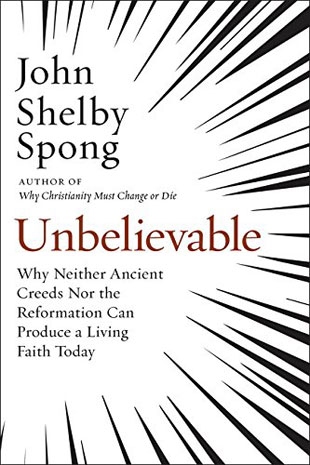"The church of the future will not dismantle and dispatch the gospel narratives, but will recognize them for what they are, a first-century attempt to explain the Christ experience. We will not jettison the creeds, but will recognize them as fourth-century love songs, sung to those people's understanding of God. We can thus join in singing these ancestral songs. We do not literalize their words, nor do we bend the church of tomorrow to the liturgical patterns of antiquity. We will allow the Christ experience to create new forms through which ultimate truth might be allowed to flow in our time.
"All of this is to say that the Christianity of tomorrow will set aside the literal formulas of our Christian past, but Christians will not ever set aside the power of the experience that expressed itself in scripture, creed, theology and liturgy. We honor each, but we literalize none!
"The Christianity of the future must also be willing and able to dialogue with the other great religious systems of the world without defining any of them as lacking or deficient. Our task is not to judge, but to accept them as they are, to call them to live fully, love wastefully and be all that they can be in the infinite variety of our humanity. We see the Christian life as a journey into the mystery of God, into a new humanity, into the ability to give ourselves away to others as the mark of the presence of Christ in us. The reformation we chart is scary, but it is noble, compelling and freeing. Even more, however, it gives the Christian story a chance to live in a new time in history. I pray it will. I pray it can. I believe it must."
